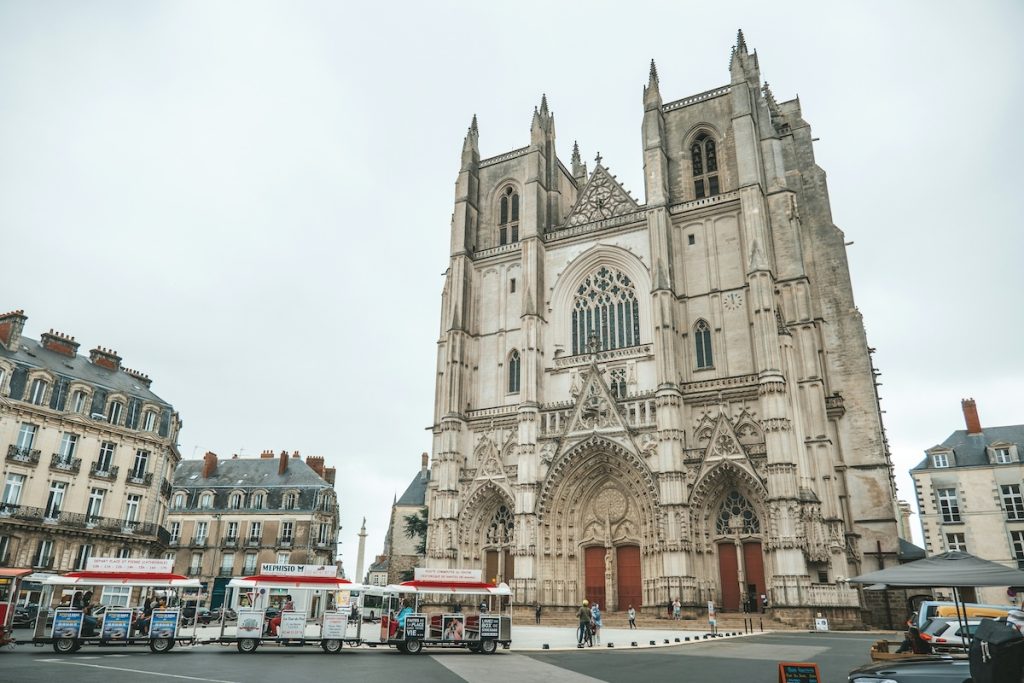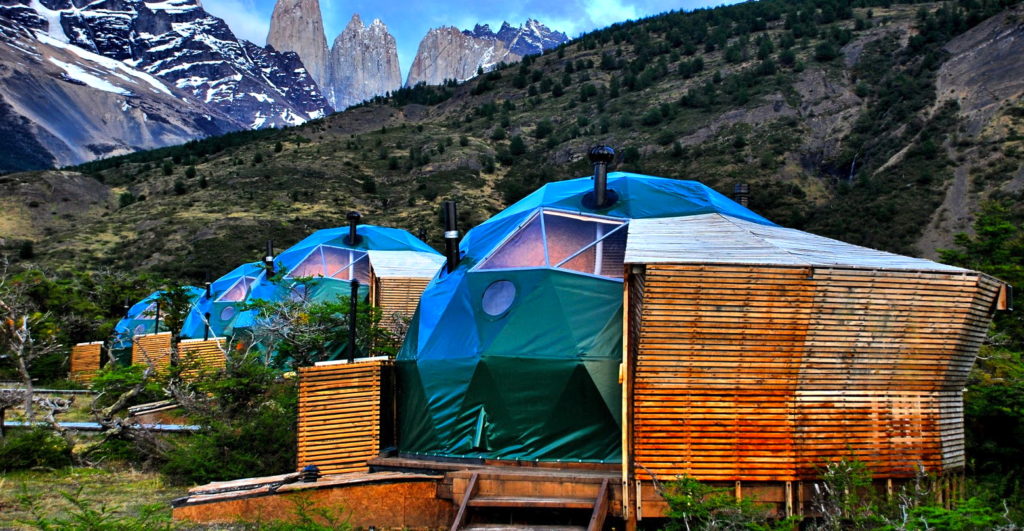The Best Destinations for Sustainable Tourism in France
France has everything travellers seek for sustainable tourism. The country boasts diverse landscapes, from mountains to coastlines, offering eco-friendly activities such as hiking, cycling, and organic wine tours. Many places in France promote sustainable tourism practices, such as providing eco-friendly accommodations, specialising in locally sourced cuisine, and implementing renewable energy initiatives. Moreover, visitors can explore historic sites, cultural landmarks, and picturesque villages while supporting responsible tourism practices.
Here are the best destinations for sustainable tourism in France.
- Nantes
Located in western France, along the Loire River, Nantes serves as the capital of the Loire-Atlantique department in the Pays de la Loire region. Renowned for its innovative urban development, commitment to eco-friendly initiatives, and cultural richness, it is the perfect destination for sustainable tourism.
Nantes focuses on eco-friendly transportation. Here, you can explore the city’s picturesque streets and scenic waterways by bicycle, utilising the city’s extensive network of bike lanes and rental services. Additionally, Nantes promotes public transportation options, including electric trams and buses, reducing carbon emissions and congestion.
Moreover, Nantes is renowned for its commitment to sustainability in urban planning and architecture. Travelers can discover innovative eco-districts, green spaces, and eco-friendly buildings that showcase the city’s dedication to environmental responsibility and sustainable living.
Furthermore, exploring Nantes’ vibrant cultural scene offers opportunities to support local artisans, farmers’ markets, and sustainable eateries that emphasise locally sourced ingredients and organic cuisine. Visitors can also immerse themselves in Nantes’ cultural heritage by visiting museums, historic landmarks, and eco-conscious attractions like the Machines of the Isle of Nantes, which combines art, engineering, and sustainability.
- Marseille
Marseille is situated in the southern part of France, along the Mediterranean coast, and is France’s second-largest city, renowned for its vibrant culture, historic port, and stunning coastal scenery. Its commitment to sustainable tourism is evident in its eco-friendly transportation options, conservation efforts, and cultural experiences.
One way to enjoy a sustainable trip in Marseille is by exploring the city’s diverse neighbourhoods and historic landmarks on foot or using its extensive public transportation network, including buses and trams. Visitors can also rent bicycles or participate in guided bike tours to discover the city’s scenic waterfronts and charming streets while reducing their carbon footprint.
Marseille’s dedication to environmental conservation extends to its coastal areas and marine life. Sustainable travellers can engage in activities such as snorkelling, kayaking, or participating in beach clean-up initiatives to support the preservation of marine ecosystems and promote responsible tourism practices.
Moreover, exploring Marseille’s vibrant cultural scene offers opportunities to support local artisans, farmers’ markets, and sustainable eateries specialising in organic cuisine and locally sourced ingredients. You can also immerse in Marseille’s cultural heritage by visiting museums, galleries, and historic sites that showcase the city’s rich history and multicultural influences.
Participating in guided eco-tours, nature excursions, and community-based initiatives further enhances the sustainable travel experience in Marseille, allowing visitors to connect with local communities and contribute to the city’s ongoing commitment to environmental sustainability and cultural preservation.
- Lyon
Lyon is in east-central France, at the confluence of the scenic Rhône and Saône rivers. It is renowned for its historical landmarks, UNESCO-listed old town, culinary scene, and vibrant cultural life. As one of France’s best destinations for sustainable tourism, it offers travellers a variety of sustainable experiences that celebrate local culture, promote eco-friendly practices, and support community initiatives.
Explore the city’s UNESCO-listed old town, also called Vieux Lyon, on foot or by utilising the city’s efficient public transportation system. Visitors can also rent bicycles or participate in guided walking tours to discover Lyon’s historic landmarks and Renaissance architecture while reducing their carbon footprint.
Lyon’s renowned culinary scene offers opportunities to support local farmers’ markets, artisanal producers, and sustainable eateries focusing on regional specialities. Sample traditional Lyonnaise dishes, visit local eateries, and participate in cooking classes that showcase the city’s gastronomic heritage.
Moreover, Lyon’s commitment to sustainability extends to its urban development and green spaces. You can explore the city’s parks, botanical gardens and riverside promenades and participate in eco-friendly initiatives such as community gardening projects and tree-planting activities.
With its blend of sustainability, culture, and culinary excellence, Lyon appeals to eco-conscious travellers seeking meaningful and responsible travel experiences in France.
- Bordeaux
Bordeaux is another destination in France for sustainable tourism due to its historical significance, scenic beauty, and commitment to environmental conservation. Situated in the heart of the renowned wine region of Nouvelle-Aquitaine, it offers a variety of sustainable experiences that celebrate local culture, promote eco-friendly practices, and support community initiatives.
One way to enjoy a sustainable trip in Bordeaux is by exploring the city’s UNESCO-listed historic centre on foot. You can also rent bicycles or participate in guided walking tours to discover Bordeaux’s architectural gems, charming squares, and picturesque quays while reducing your carbon footprint.
Bordeaux’s reputation as a wine capital provides opportunities to support sustainable viticulture practices and visit organic and biodynamic wineries in the surrounding countryside. Engage in wine tastings, vineyard tours, and cellar visits that showcase Bordeaux’s rich winemaking heritage while promoting environmental stewardship. Participate in cultural events, art exhibitions, and community festivals to immerse in Bordeaux’s vibrant cultural scene while supporting local artists and promoting cultural exchange.
In addition to Bordeaux’s allure for sustainable tourism, consider improving your eco-conscious travel with some of France’s most memorable tour experiences. While immersed in Bordeaux’s vibrant cultural scene, take advantage of the opportunity to support sustainable winemaking. Visit organic and biodynamic wineries in the surrounding countryside, participate in wine tastings, and embark on cellar tours that highlight Bordeaux’s winemaking legacy while simultaneously emphasising environmental responsibility.
With its unique blend of sustainability, culture, and gastronomy, Bordeaux appeals to eco-conscious travellers seeking meaningful and responsible travel experiences in France.
- Lille
Located in the Hauts-de-France region, Lille offers travellers a variety of sustainable experiences that celebrate local culture, promote eco-friendly practices, and support community initiatives, making it a top choice for sustainability tourism.
Rent bicycles or participate in guided walking tours to discover Lille’s charming neighbourhoods, picturesque squares, and architectural treasures while reducing your carbon footprint. Discover Lille’s renowned culinary scene and support local farmers’ markets, artisanal producers, and sustainable eateries that emphasise organic ingredients and regional specialities. Sample traditional Flemish dishes and participate in cooking classes that showcase the city’s local cuisines.
Participating in cultural exchanges, visiting museums, and attending local events also allow you to immerse in Lille’s vibrant cultural scene while supporting local artists and promoting cultural exchange. Engage in eco-friendly initiatives such as recycling, waste reduction, and energy conservation, or participate in volunteer projects and community clean-up efforts to support environmental conservation and promote social responsibility.




